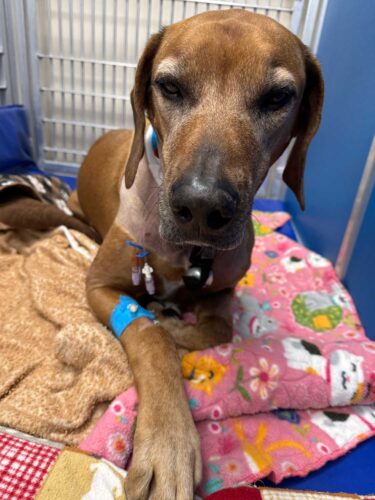
Our four-legged friends deserve all the love and support we can give them. But that can get tough when it requires a four-figure veterinary bill. When the only option to save your pet is to spend thousands, the costs can seem excessive and daunting, but the hospitals have their reasons for charging as they do. They love animals as much as you do — but they also have to stay in business!
Most pet parents take Kitty and Fido to a regular vet for the basics like vaccinations, minor surgeries and such. Then there are unplanned emergencies that send us to the veterinary ER and finally, the more extensive cases that might need a specialist.
The Eugene Animal Hospital was founded in 1940, and as a small locally owned business says it can provide a compassionate, personal experience. Still, it has received some confusion and frustration from clients over the prices of different services such as surgeries or vaccinations.
Anna Donahue, the veterinary practice manager, explains there are several factors that cause price increases, including fairly paying their workers.
Donahue says there is currently a major shortage in veterinarians and veterinary technicians. “The competition in this industry to pay better wages for our employees is also a big factor in needing to address pricing.”
Inflation is also a large reason for an increase in veterinary service prices. “The cost of goods that we need to use in our hospitals have greatly increased, if not tripled in prices,” Donahue says. In order to afford the necessary products, Eugene Animal Hospital has had no choice but to raise prices.
“The supplies are way more expensive than they’ve ever been in the 16 years I’ve done this job,” Donahue says. “Now, another thing that’s coming into play is tariffs.”
Eugene Animal Hospital gets some supplies from out of the country, which now greatly increases its costs. “What used to be five bucks is now 22,” she says. “And so we have to make up for that, which, unfortunately, you have to pass it along to the consumer.”
Donahue says the main trifecta that affects their prices is staffing and wages, cost of goods, and finally, the involvement of big corporations in veterinary practice. There are few small businesses left in the veterinary world. As big hospitals dominate the veterinary care scene, they affect the local economic markets.
Donahue says big corporations have an advantage over small businesses in access to products. “They can do huge bulk orders where they get these big price decreases and breaks, where we don’t get that,” she says.
As big hospitals grow and continue to take over the market, small organizations are forced to raise their prices to stay afloat and afford their goods. Donahue says she understands why the price increases are happening, “but at the same time, it’s uncomfortably fast.”
The Emergency Veterinary Hospital in Springfield is open 365 days of the year, 24 hours a day — a factor that plays into its costs. The EVH team is highly trained in emergency animal services that all vets may not be able to treat.
In 2019, EVH became a branch of the Lakefield Veterinary Group, a veterinary hospital and veterinary practice acquisition company, which is in charge of setting the prices for services at the Emergency Veterinary Hospital in Springfield.
The set price for a walk-in exam is $169. This includes getting your pet’s vitals taken and being seen by a doctor.
EVH employee Nathalie Worth says there are multiple factors at play when it comes to the overall cost of veterinary medicine. “I would say the first one being that the research and science behind vet med, much like human med, can be costly.” She points to making medications that are catered to animals, along with creating machines and instruments that might need special materials or must be manufactured differently from the human ones.
Worth also says that pet insurance is a relatively new thing — although there has been an increase in clients having insurance, which she says is “amazing.” But, “we are not at the point of being able to bill an insurance company yet, because of this bills have to be paid upfront, so it makes them feel like the cost is a lot higher and you are paying it all out of pocket.”
Some more complicated cases go to Oregon State University’s Lois Bates Acheson Veterinary Teaching Hospital, which focuses on specialized care for those complex cases. OSU gives a quote with a price range before proceeding with treatment. OSU spokesperson Rob Odom echoes Worth saying, “Our pricing reflects the expertise, advanced techniques and equipment necessary for providing highly specialized care.”
Options for pet owners worried about pricing include loans like CareCredit, pet insurance and low-cost options like Willamette Animal Guild providing low-cost spay and neuter services and more. Setting up a small savings account for your pet is also a good choice.
Worth says, “The last thing I would say is medicine is still medicine, animal or human. It still requires supplies, machines, staff and a facility to do it in. Ultimately, we still all have a common goal to help pets get the care they need to live long happy lives!”
Eugene Animal Hospital, 1432 Orchard St., EugeneAnimal.com, 541-342-1178. Emergency Veterinary Hospital in Springfield, 1821 Pioneer Parkway East, EmergencyVethosp.com, 541-746-0112. Oregon State University’s Lois Bates Acheson Veterinary Teaching Hospital, 172 Magruder Hall in Corvallis, VetMed.oregonstate.edu/hospital, 541-737-4812.